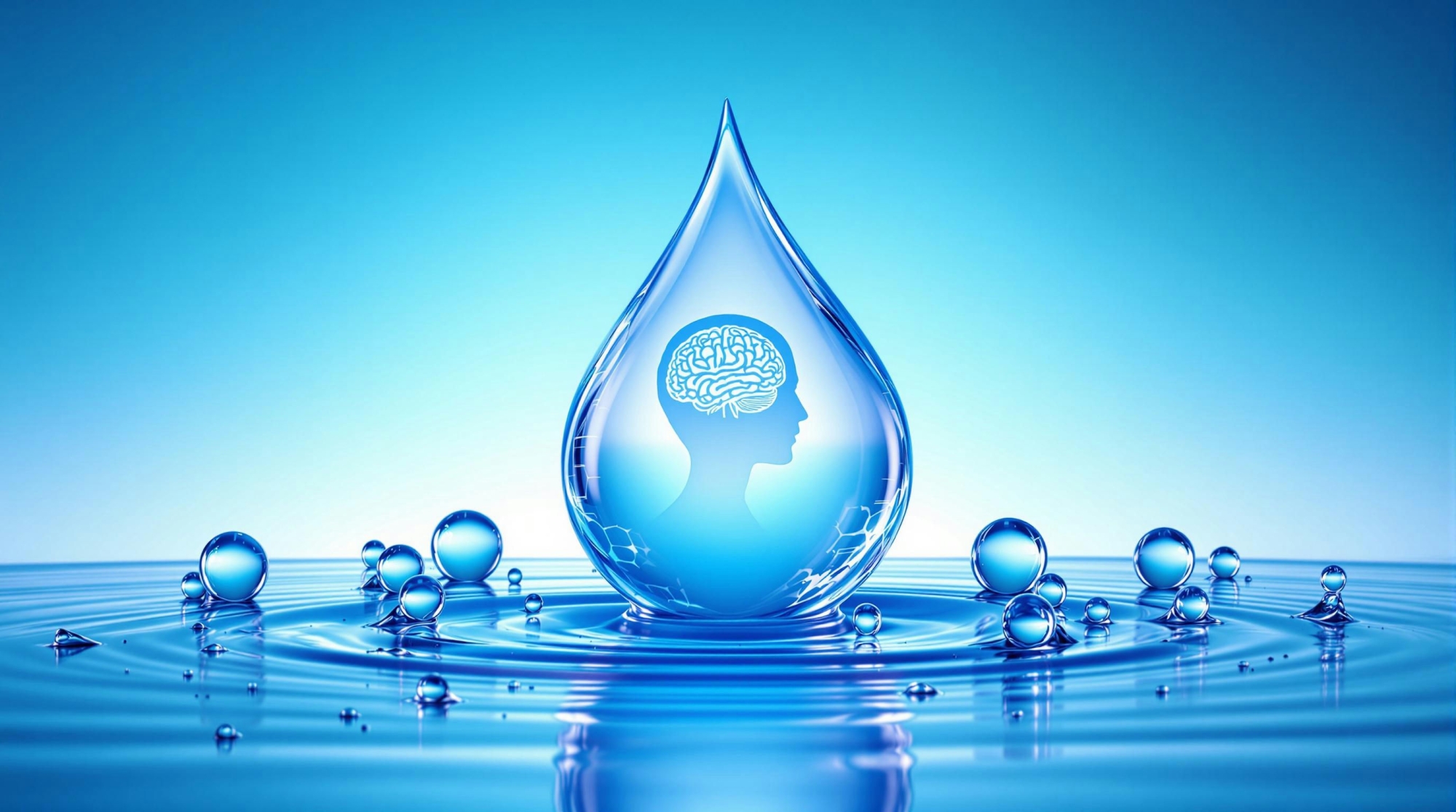The Hidden Impact of Dehydration: Signs You’re Not Drinking Enough Water and How to Fix It
The Hidden Impact of Dehydration: Signs You’re Not Drinking Enough Water and How to Fix It
Water is essential to life, yet many of us don’t drink enough of it. In the rush of daily living—especially in a bustling city like Toronto—staying properly hydrated often falls to the bottom of our priority list. At Care& Family Health, our Nurse Practitioners regularly see patients experiencing symptoms that, surprisingly, trace back to simple dehydration.
Did you know that by the time you feel thirsty, you’re already dehydrated? Or that even mild dehydration can impact your cognitive function by up to 30%? These subtle effects can significantly impact your daily performance, mood, and long-term health.
Table of Contents
-
Understanding Dehydration: More Than Just Thirst -
Surprising Signs You’re Not Drinking Enough Water -
Why Staying Hydrated Matters: The Health Benefits -
How Much Water Do You Really Need? -
Practical Strategies to Improve Your Hydration -
Special Considerations for Different Groups -
When to Seek Medical Attention for Dehydration -
The Connection Between Chronic Dehydration and Long-Term Health -
Hydration for Toronto’s Seasonal Challenges -
Conclusion: Making Hydration a Priority -
Frequently Asked Questions
This guide explores the often-overlooked signs of dehydration, explains why proper hydration matters, and offers practical solutions to help you maintain optimal fluid balance. Understanding these hidden signals could be the key to improving your energy, mental clarity, and overall wellbeing.
Understanding Dehydration: More Than Just Thirst
Dehydration occurs when your body loses more fluid than it takes in. This creates an imbalance that affects everything from cellular function to organ systems. While we typically associate dehydration with extreme conditions—like intense exercise or hot weather—the truth is that chronic, mild dehydration is incredibly common.
The human body is approximately 60% water, with crucial systems like your blood, brain, and muscles containing even higher percentages. This water serves essential functions:
-
Regulating body temperature -
Removing waste through urination and sweating -
Protecting sensitive tissues like your brain and spinal cord -
Lubricating joints -
Supporting digestion and nutrient absorption -
Enabling cellular processes throughout the body
When hydration levels drop, even slightly, these systems can’t function optimally. What makes this particularly concerning is that many people live in a state of mild, chronic dehydration without recognizing it.
Track Your Hydration with Care&
Our app’s Health Metrics feature helps you monitor your daily water intake alongside other important health markers. Set goals, receive reminders, and see your progress over time.
Surprising Signs You’re Not Drinking Enough Water
Many dehydration symptoms masquerade as other health issues, making them easy to misinterpret. Here are the subtle signals your body may be sending:
1. Persistent Fatigue and Low Energy
That mid-afternoon energy crash might not just be about needing another coffee. When you’re dehydrated, your blood volume decreases, forcing your heart to work harder to pump oxygen and nutrients throughout your body. This extra effort can leave you feeling exhausted, even after a full night’s sleep.
2. Brain Fog and Difficulty Concentrating
Having trouble focusing during important meetings or finding yourself making small mistakes? Studies show that even 1-2% dehydration (which occurs before you feel thirsty) can impair cognitive functions like concentration, short-term memory, and alertness. Your brain is particularly sensitive to fluid balance changes.
3. Frequent Headaches
Before reaching for pain relievers, consider whether dehydration might be triggering your headaches. When fluid levels drop, the brain can temporarily contract or shrink from fluid loss, pulling away from the skull and triggering pain receptors. Hydrating often relieves these headaches within 30 minutes to 3 hours.
4. Mood Changes and Irritability
Notice yourself becoming unusually irritable or anxious? Research published in the Journal of Nutrition found that mild dehydration significantly increased tension, anxiety, and fatigue while decreasing vigor in study participants. Your brain’s biochemistry is highly dependent on proper hydration.
5. Dry Skin That Lacks Elasticity
While many factors affect skin appearance, chronic dehydration reduces skin elasticity and can make fine lines more pronounced. A simple test: pinch the skin on the back of your hand for a few seconds. If it doesn’t bounce back quickly (a condition called “tenting”), you might be dehydrated.
6. Dark Urine or Infrequent Urination
One of the most reliable indicators of hydration status is your urine. Properly hydrated individuals produce clear to light yellow urine approximately every 3-4 hours. Dark yellow or amber-colored urine, or going longer than 4 hours without urinating while awake, suggests dehydration.
7. Increased Hunger, Especially for Sweets
The hypothalamus in your brain regulates both thirst and hunger, and sometimes these signals get crossed. What you interpret as hunger—particularly cravings for sweet foods—might actually be thirst. Try drinking a glass of water before reaching for a snack and wait 20 minutes to see if your hunger subsides.
8. Muscle Cramps and Joint Pain
Water acts as a lubricant for your joints and helps regulate muscle contractions. Without adequate hydration, you may experience increased joint pain or muscle cramps, particularly during or after physical activity. This is especially common in the calves, feet, and thighs.
9. Constipation and Digestive Discomfort
Your digestive system requires adequate water to function properly. Dehydration can lead to harder stools that are difficult to pass, resulting in constipation and related discomfort. Water helps food move through your intestines and keeps the digestive tract flexible and clean.
10. Bad Breath Despite Good Oral Hygiene
Surprised to have persistent bad breath despite brushing and flossing regularly? Dehydration reduces saliva production. Saliva has antibacterial properties, and without enough of it, bacteria can proliferate in your mouth, causing unpleasant breath odors.
Experiencing These Symptoms? We Can Help
At Care& Family Health, our Nurse Practitioners can evaluate your symptoms, assess your hydration status, and help develop a personalized plan to improve your health. Book a same or next-day appointment to discuss your concerns.
Why Staying Hydrated Matters: The Health Benefits
Proper hydration isn’t just about avoiding the symptoms above—it’s about optimizing your health. Here are some of the evidence-based benefits of maintaining good hydration:
Improved Cognitive Performance
Research published in the British Journal of Nutrition demonstrated that proper hydration can improve cognitive performance by up to 30%, affecting reaction time, attention span, and memory function. For professionals in demanding fields, this cognitive edge can make a significant difference.
Enhanced Physical Performance
Even mild dehydration can reduce physical performance by affecting endurance, increasing perceived effort, and decreasing coordination. This matters not just for athletes but for anyone who wants to maintain an active lifestyle or simply have enough energy for daily activities.
Better Mood Regulation
Multiple studies have linked proper hydration to improved mood states and reduced feelings of confusion, anger, and depression. In a fast-paced environment like Toronto, this emotional resilience can be particularly valuable.
Supported Weight Management
Water consumption before meals has been shown to reduce calorie intake, and staying hydrated helps maintain proper metabolic function. Many people also confuse thirst with hunger, leading to unnecessary snacking when simple hydration would have sufficed.
Healthier Skin Appearance
Well-hydrated skin appears more plump, elastic, and radiant. While no amount of water can erase wrinkles completely, proper hydration helps the skin maintain its protective barrier function and can minimize the appearance of fine lines.
Better Detoxification
Your kidneys filter waste from your blood, but they need adequate water to function effectively. Proper hydration supports the kidneys’ ability to remove toxins and waste products from your body efficiently.
Reduced Risk of Kidney Stones
Staying well-hydrated dilutes the concentration of minerals in your urine that can form kidney stones. For those who have experienced the intense pain of kidney stones, this preventive benefit alone can be motivation to increase water intake.
Hydration Reminders in Your Pocket
The Care& mobile app can send you customized hydration reminders throughout the day. Download now to start improving your health habits.
How Much Water Do You Really Need?
The traditional “8 glasses a day” rule is a reasonable starting point, but individual hydration needs vary based on several factors:
-
Body size and weight: Larger individuals generally need more water -
Activity level: Exercise increases water needs significantly -
Environmental conditions: Hot or humid weather increases fluid loss through sweat -
Overall health: Certain medical conditions and medications affect hydration needs -
Pregnancy or breastfeeding: Both conditions increase fluid requirements
A more personalized approach is to multiply your weight in kilograms by 30-35 ml for a daily target. For example, a 70kg person would need approximately 2.1-2.5 liters of water daily under normal circumstances.
At Care& Family Health, our Nurse Practitioners often recommend that patients monitor their urine color as a practical indicator. Pale yellow urine suggests good hydration, while darker yellow indicates a need for more fluids.
Personalized Hydration Assessment
Need help determining your ideal water intake? Our Nurse Practitioners can provide personalized hydration recommendations based on your specific health profile, activity level, and lifestyle factors.
Practical Strategies to Improve Your Hydration
Knowing you should drink more water is one thing—actually doing it consistently is another. Here are effective strategies to help you stay hydrated throughout your day:
Track Your Intake
Use a water bottle with measurements or a hydration-tracking app on your smartphone. Having a visual reminder of your progress makes a significant difference in meeting your goals. Many of our patients at Care& use the health tracking features in our app to monitor their hydration alongside other health metrics.
Create a Schedule
Instead of trying to remember to drink water randomly throughout the day, tie your hydration to specific times or events. For example:
-
One glass immediately upon waking -
One glass with each meal -
One glass before and after exercise -
One glass an hour before bed
Enhance the Taste Naturally
If plain water doesn’t appeal to you, try infusing it with natural flavors:
-
Cucumber and mint -
Lemon, lime, or orange slices
-
Berries (strawberries, raspberries) -
Watermelon chunks
-
Fresh herbs like basil or rosemary
These additions provide subtle flavor without the sugar or artificial ingredients found in commercial beverages.
Set Up Environmental Cues
Keep a water bottle visible at your desk, in your car, and at home. Visual reminders significantly increase the likelihood you’ll reach for water. Consider special bottles that light up or connect to smartphone apps that remind you to drink.
Pre-Empt High-Risk Situations
Certain situations predictably lead to dehydration. Plan ahead by:
-
Drinking extra water before air travel -
Increasing intake before, during, and after exercise -
Being mindful of hydration during hot weather -
Compensating for fluid loss caused by alcohol consumption (one glass of water for every alcoholic drink)
Build New Habits Through Pairing
Link water consumption with habits you already have firmly established. For example:
-
Drink water while checking morning emails -
Take three sips every time you check your phone -
Finish a glass every time you return to your desk -
Have water while watching each episode of a show
Focus on Water-Rich Foods
Approximately 20% of our daily fluid intake comes from food. Increase your consumption of:
Cucumber
(96% water)
Celery
(95% water)
Tomatoes
(94% water)
Watermelon
(92% water)
Bell Peppers
(92% water)
Strawberries
(91% water)
Cantaloupe
(90% water)
These foods contribute to your overall hydration while providing valuable nutrients and fiber.
Take Control of Your Hydration
Care&’s Health Metrics feature helps you track your water intake, set reminders, and see trends over time. Our Medication Tracking System can also help you identify if any of your medications contribute to dehydration risk.
Special Considerations for Different Groups
Children and Teens
Children need proportionally more water than adults due to their higher metabolic rates and greater surface area relative to body mass. They’re also less likely to recognize thirst cues. Signs of dehydration in children can include decreased activity, fewer wet diapers, lack of tears when crying, and dry mouth.
For Toronto families, establishing good hydration habits early is crucial. At Care& Family Health, our pediatric care focuses on preventive health strategies, including helping parents teach children the importance of regular water intake.
Older Adults
The sense of thirst diminishes with age, putting older adults at increased risk for dehydration. Certain medications common among seniors, like diuretics or laxatives, can further increase fluid loss. Older adults should develop the habit of drinking regularly throughout the day, regardless of thirst.
Athletes and Active Individuals
People with active lifestyles require more water to compensate for fluid lost through sweat. For every pound lost during exercise, approximately 2-3 cups of fluid should be consumed. Sports drinks with electrolytes may be beneficial for intense workouts lasting longer than an hour.
Pregnant and Breastfeeding Women
Water requirements increase significantly during pregnancy and breastfeeding. Pregnant women need about 10 cups (2.3 liters) of fluids daily, while breastfeeding women require approximately 13 cups (3 liters). Proper hydration helps prevent complications like urinary tract infections and constipation during pregnancy.
Need Personalized Hydration Advice?
At Care& Family Health, our Nurse Practitioners can develop customized hydration plans based on your specific health needs, medications, and lifestyle factors.
When to Seek Medical Attention for Dehydration
While mild dehydration can often be addressed by simply increasing fluid intake, severe dehydration requires medical attention. Watch for these warning signs:
- Extreme thirst
- Very dark urine or no urination for 8+ hours
- Dizziness or lightheadedness that interferes with standing
- Confusion or disorientation
- Rapid heartbeat or breathing
- Sunken eyes
- Fainting
- In infants: no wet diapers for 3+ hours, excessive sleepiness, or sunken soft spot
At Care& Family Health, our medical clinic offers same or next-day appointments for urgent concerns like dehydration. Our Nurse Practitioners are trained to recognize and treat dehydration while also addressing any underlying conditions that might be contributing to fluid imbalance.
Experiencing Severe Dehydration Symptoms?
Don’t wait. Our Secure Admin Chat feature allows you to connect with our healthcare team quickly to determine if you need immediate care.
The Connection Between Chronic Dehydration and Long-Term Health
Research increasingly suggests that chronic, mild dehydration may contribute to various health issues over time:
Kidney Function Decline
Your kidneys require adequate water to filter waste effectively. Chronic dehydration forces them to work harder and may contribute to reduced kidney function over time.
Increased Risk of Urinary Tract Infections
Proper hydration helps flush bacteria from the urinary tract. Without sufficient water, bacteria can multiply more easily, increasing infection risk—particularly in women.
Cognitive Health Concerns
Some research suggests that habitual low water intake may be associated with reduced cognitive function over time and potentially increased risk of cognitive decline with aging.
Blood Pressure Regulation Issues
Adequate hydration helps maintain proper blood volume. Chronic dehydration may contribute to blood pressure regulation problems in some individuals.
Digestive System Complications
Long-term dehydration increases the risk of chronic constipation, which can lead to complications like hemorrhoids or anal fissures.
Monitor Your Health Metrics
With Care&’s Health Metrics feature, you can track your hydration alongside important indicators like blood pressure, heart rate, and more—helping you spot connections between hydration and your overall health.
Hydration for Toronto’s Seasonal Challenges
Toronto’s climate presents unique hydration challenges throughout the year:
Winter Dehydration
Indoor heating significantly reduces humidity, increasing respiratory water loss. Additionally, people often drink less in cold weather due to reduced thirst sensation. Winter dehydration can contribute to dry skin, respiratory infections, and fatigue during Toronto’s cold months.
Summer Heat Waves
Toronto summers can bring intense heat and humidity that dramatically increase fluid requirements. During heat warnings, water needs may increase by 50% or more. Proper hydration is critical for preventing heat-related illness.
Air-Conditioned Environments
Many Toronto workplaces, shopping centers, and public transit use air conditioning, which can accelerate fluid loss through respiration. Those spending long hours in air-conditioned environments should be particularly mindful of hydration.
At Care& Family Health, our Nurse Practitioners provide personalized preventive care advice tailored to Toronto’s seasonal challenges. Through unlimited appointments—both virtual and in-person—we help patients develop health strategies that address these local factors.
Seasonal Hydration Consultations
Need specific advice for staying hydrated during Toronto’s challenging seasons? Our Nurse Practitioners can help develop a personalized plan.
Conclusion: Making Hydration a Priority
Proper hydration is one of the simplest yet most impactful changes you can make for your health. By recognizing the subtle signs of dehydration and implementing practical strategies to increase your water intake, you can boost your energy, improve cognitive function, enhance mood, and support long-term health.
At Care& Family Health, we believe that preventive care starts with these fundamental health behaviors. Our approach to primary healthcare emphasizes education, prevention, and personalized guidance—helping patients understand not just what to do, but how to successfully implement sustainable health habits.
If you’ve been experiencing unexplained fatigue, headaches, concentration difficulties, or other symptoms mentioned in this article, consider both your hydration status and whether it’s time for a comprehensive health assessment. With the right support and information, optimal hydration can become an effortless part of your daily routine—and a cornerstone of your overall wellbeing.
Ready to Take Control of Your Health?
Join Care& Family Health for personalized care, unlimited appointments, and seamless digital health tracking. Our Nurse Practitioners can help you develop healthy hydration habits as part of your comprehensive wellness plan.
Frequently Asked Questions
Have More Questions?
Our Knowledge Base has additional resources on hydration, or connect with one of our Nurse Practitioners for personalized advice.
Less Wait Time, More Face Time
Visit www.careand.ca to register
Contact Information:
📞 Phone: +1-647-951-4770
📧 Email: helpdesk@careand.ca
🌐 Website: www.careand.ca
Disclaimer:
This article is for informational purposes only and does not constitute medical advice. Always consult with a qualified healthcare provider for personal medical guidance. The information provided is general in nature and may not apply to individual circumstances.







